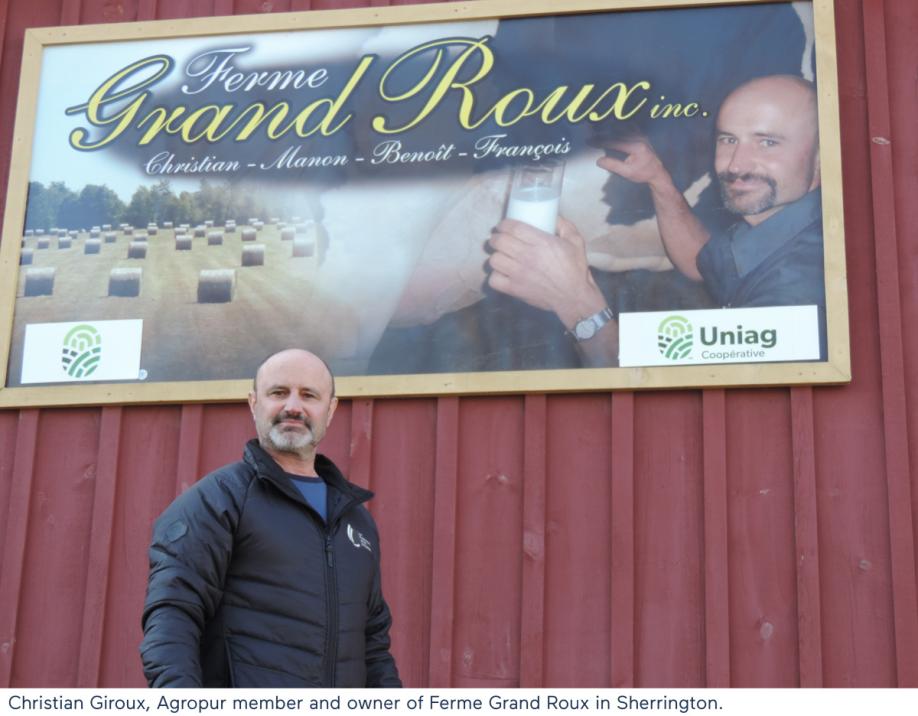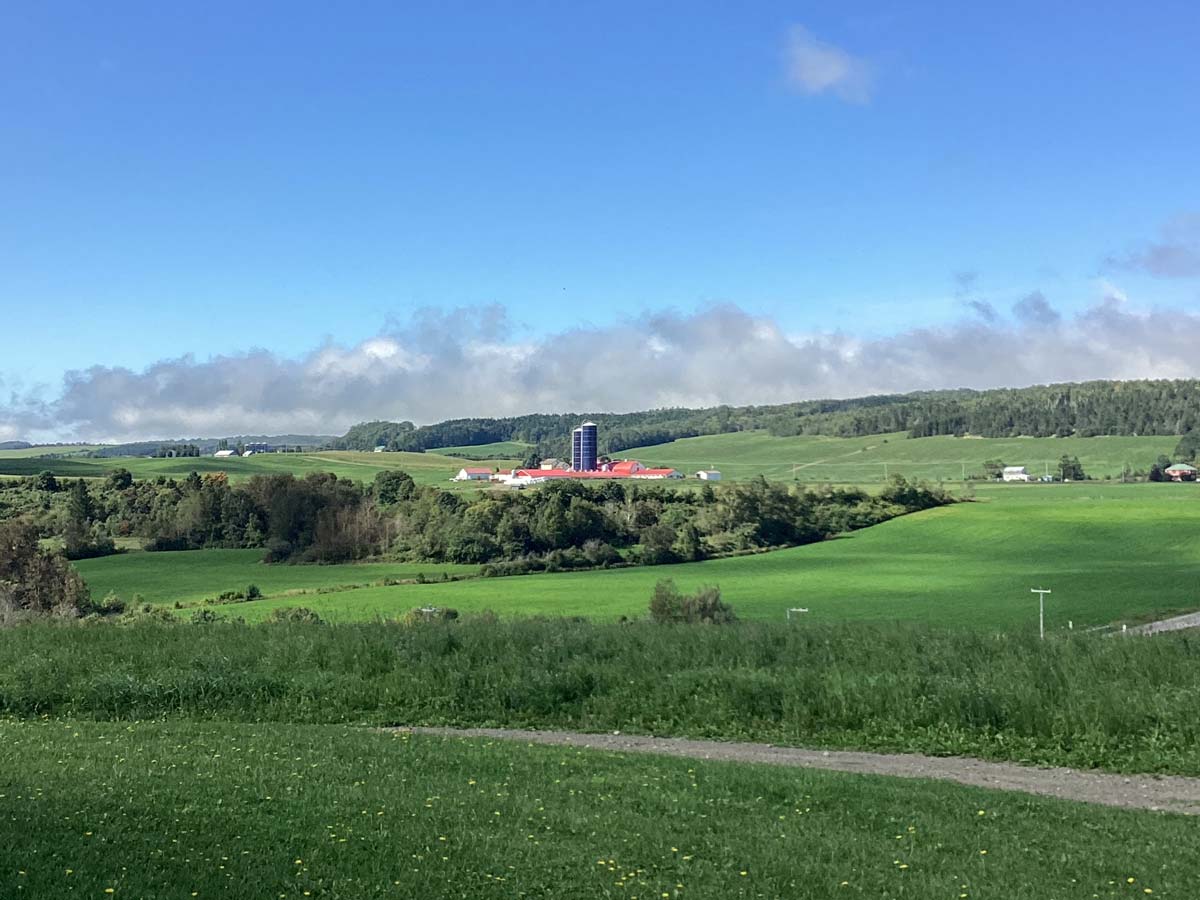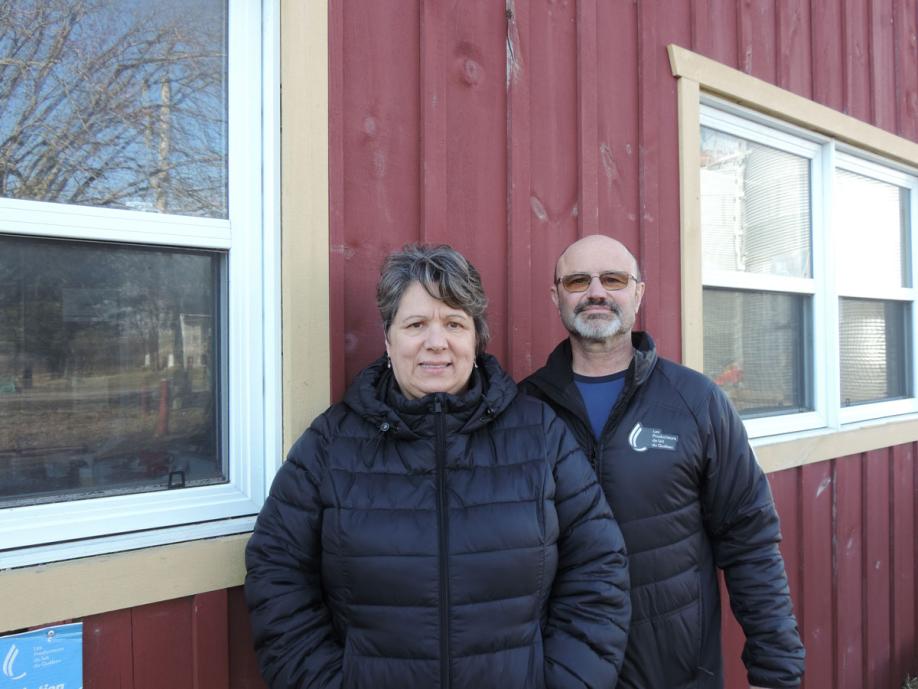Christian Giroux, a Member and Dairy Producer on a Mission to Break the Stereotypes

As Christian Giroux sees it, dairy production is destined for a bright future. According to the Sherrington, Quebec, producer, dairy production has helped to develop rural Quebec and it isn’t ready to fade away despite the arrival of competing products on grocery store shelves.
“Consumers want to do the right thing by choosing certain products they think are better, but they don’t know how they’re prepared,” explains the 56-year-old Agropur member. “That’s why dairy producers must continue to clearly communicate what is being done and make themselves understood by all.”
It is this that motivated Giroux to participate in last year’s Sustainable Farms pilot project. He understands that to make the benefits of dairy farming more widely known, he’ll have to marshal the facts.
“The cows are an important part of our work, and we take great care of them. By embarking on this path, we want to get the public to change their mindsets. We want to evaluate our situations so we can improve and tell people all about it,” he continued. “Before having standards imposed upon us, we’ve got to start the work ourselves.”
This third-generation dairy producer knows that people tend to be harder on themselves than they deserve to be. “When someone from outside comes along and tells us that what we’re doing is good, it’s a great feeling. We’re too glued to our businesses to properly take stock of what we’re doing.”
Improvements for His Farm
Christian Giroux has benefitted from Sustainable Farms to improve some aspects of his barn, particularly the ventilation and lighting. “There was too little light where the cows eat,” he explains. “By changing the neon lights for LED, they eat better, and more, and we improve the cows’ metabolisms.”
He greatly appreciated the support of Agropur’s Cooperative Advisors and their collaboration in optimizing the Sustainable Farms pilot project. He is optimistic about what comes next with the Sustainable Farms Program. “Change is often nerve-wracking. If more farms participate, Agropur will acquire new experience, new data, and that can only be beneficial for us.”
And it will take the time necessary to do things right.
“There is only one way to eat an elephant: a bite at a time, as my grandfather used to say. We’re working with living things and with the earth. You can’t turn things upside-down in a year. It’s not like replacing a machine in a factory. If you go too fast, the producers will give up, whereas if you give them time to adapt, you’re on the right path.”
Driving the Message Home
According to Giroux, who owns Ferme Grand Roux with his wife Manon Perras, the public at large should know what really happens on a farm. Giroux thinks people have preconceived ideas about agriculture and dairy production and he wants to help break the stereotypes.
And he had a bad experience with his high school guidance counselor as a child.
“When I told him I was going into agriculture, he put me down right away. I’ve discovered since that we’re looked down upon as polluters, users of fertilizers, pesticides, or we exploit animals.”
As a result, Giroux started making presentations in schools to speak of his passion and of the journey milk takes from the farm to the kitchen table. He’s been doing it for years. “I make an effort to put better messages out there about a trade that isn’t given its proper dues,” he concludes.
CARBON FOOTPRINT
Carbon Footprint: What Can be Done With Improvements Once They’re Calculated?
Once their carbon footprint is calculated, what options do dairy producers have? How can our members ensure they have an impact on the dairy industry’s efforts? Here are some explanations by our expert, Etienne Dupont.









